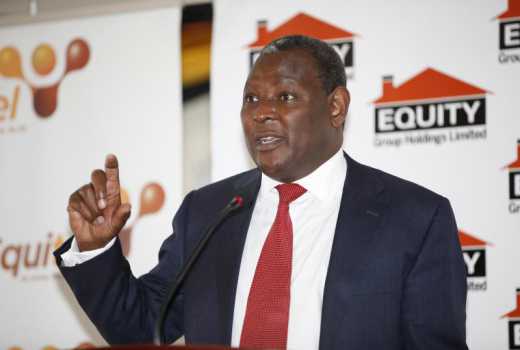×
The Standard e-Paper
Home To Bold Columnists

For many, the story of the rise of Equity Bank from insolvency to control a quarter of the country’s deposits is synonymous with James Mwangi, the towering figure that has dominated the lender’s history.
But how one of the seven children brought up by a widow and subsistence farmer rose through the ranks and learned how to identify talent and retain it has been in the background.